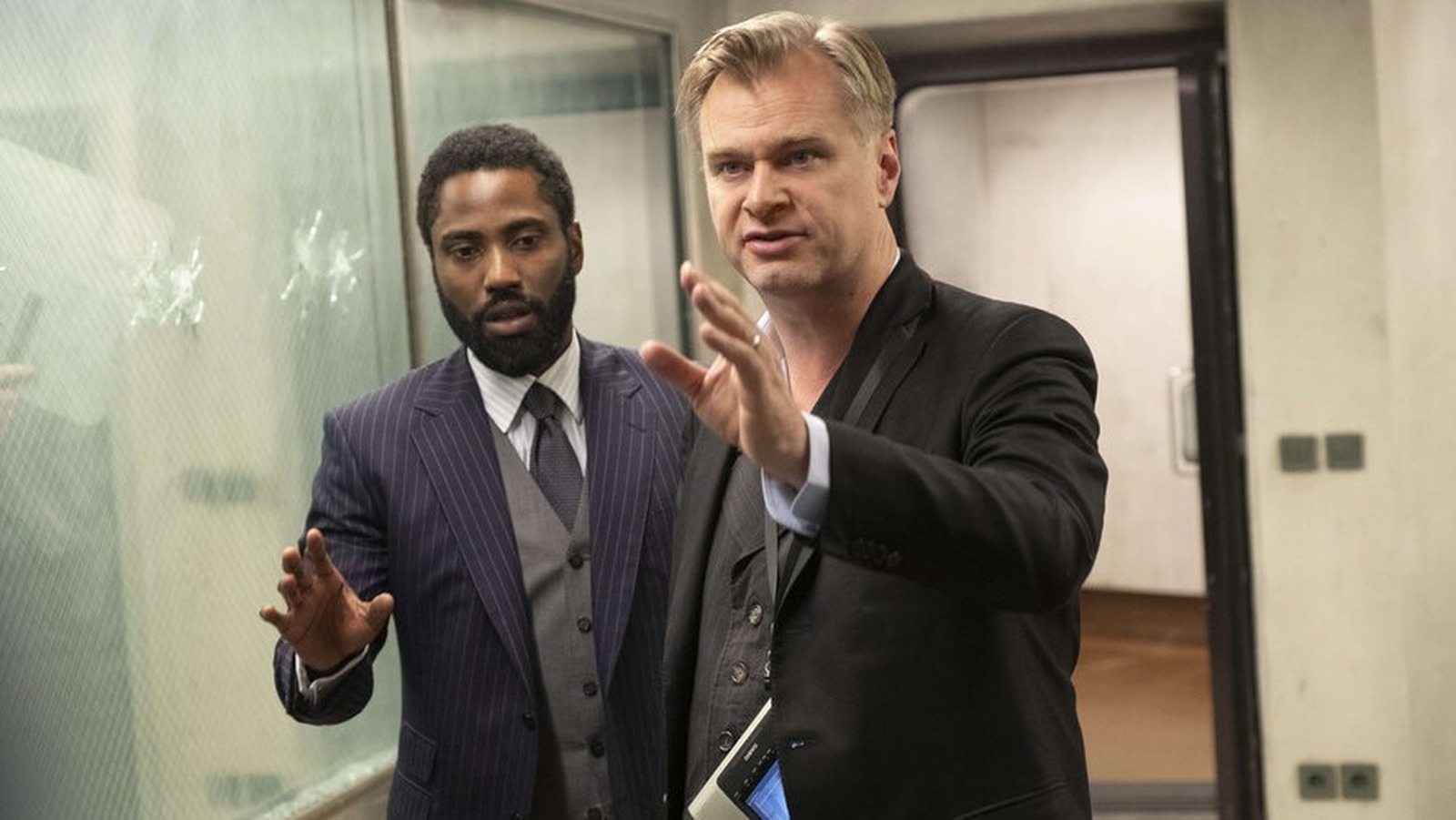“Tenet” is about The Protagonist (John David Washington), a CIA agent caught in a super-villainous plot to destroy the world with time-manipulating “Inversion” technology. Due to these toys, several action scenes in “Tenet” are replays of ones we’ve previously seen — but played in reverse (that’s why the title is a palindrome). I won’t try to explain “Tenet” beyond this, especially since I’ve only watched it in full once, but according to Nolan, maybe I don’t need to say more.
Colbert asked Nolan, “Do your films have meaning or being? In other words, do I have to get your films or can I experience your films?” Nolan answered:
“If you experience my film, you are getting it and I feel very strongly about that. I think where people encounter frustrations with my narratives in the past, sometimes I think they’re slightly missing the point. It’s not a puzzle to be unpacked, it’s an experience to be had — preferably in a movie theater but also at home. […] For me it’s really all about that emotional experience of watching a film with an audience.”
Colbert followed up by asking about “Tenet,” how it baffled viewers, and if Nolan himself understands “everything” in the movie. Nolan replied: “You’re not meant to understand everything in ‘Tenet.’ It’s not all comprehensible. It’s a bit like asking if I know what happens to the spinning top at the end of ‘Inception’ […] I have to have my idea of it for it to be a valid, productive ambiguity, but the point of it is that it’s an ambiguity.”
If a film makes you think, you should recognize that’s only because of how it made you feel and care. You don’t waste time or headspace thinking long and hard about something that sparked indifference, right?

